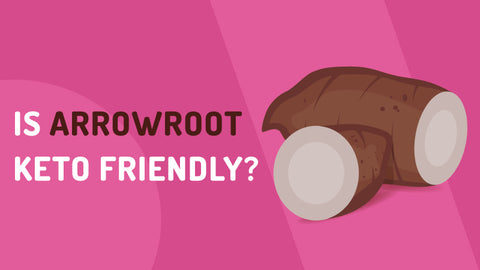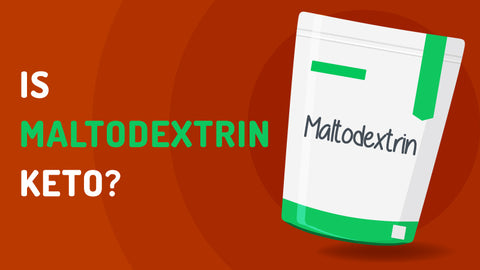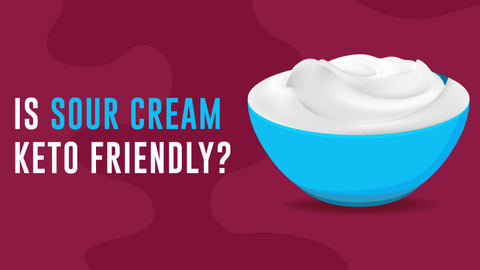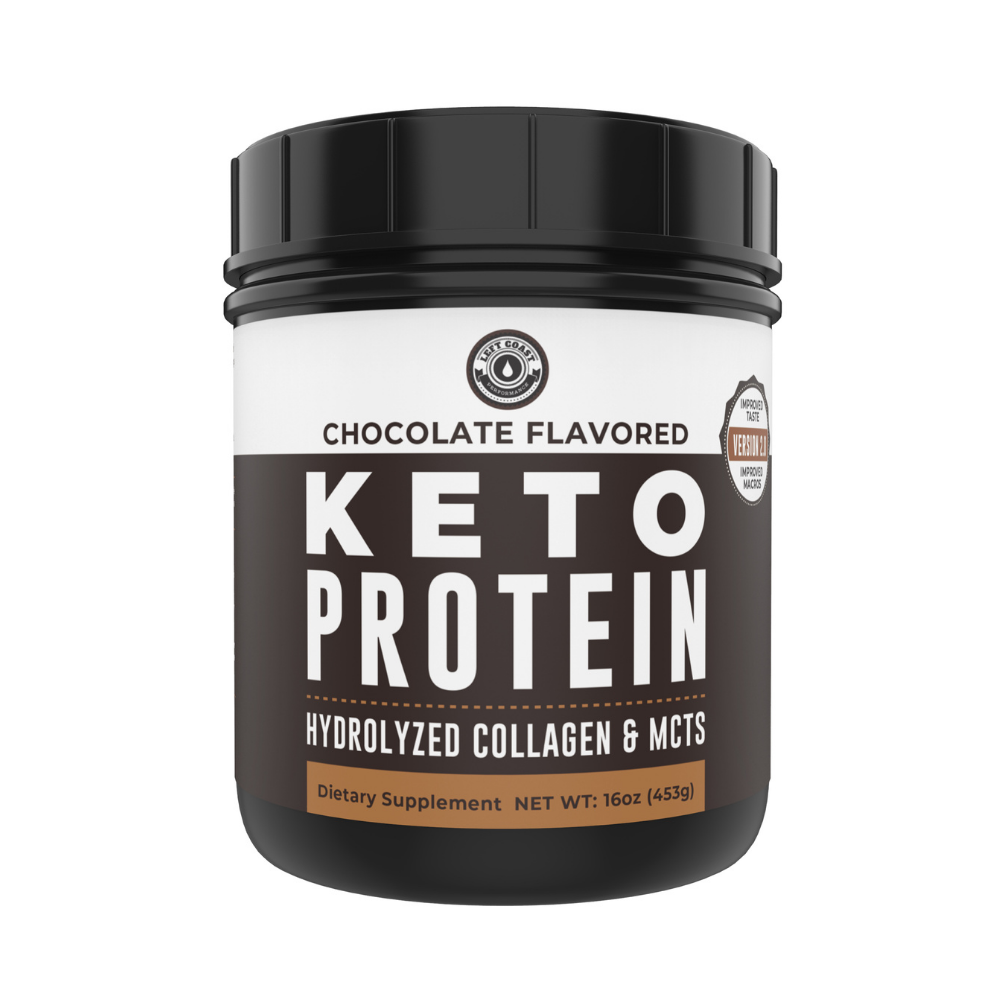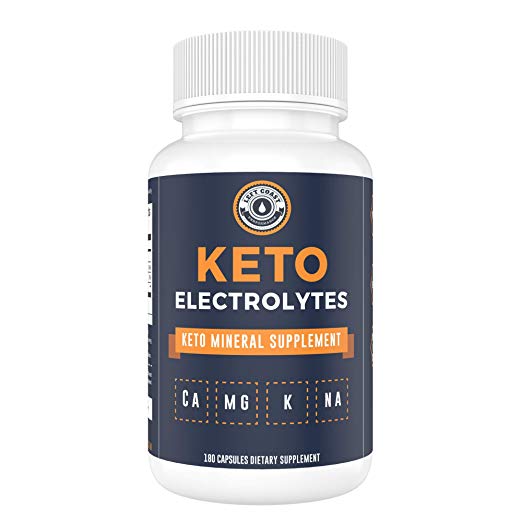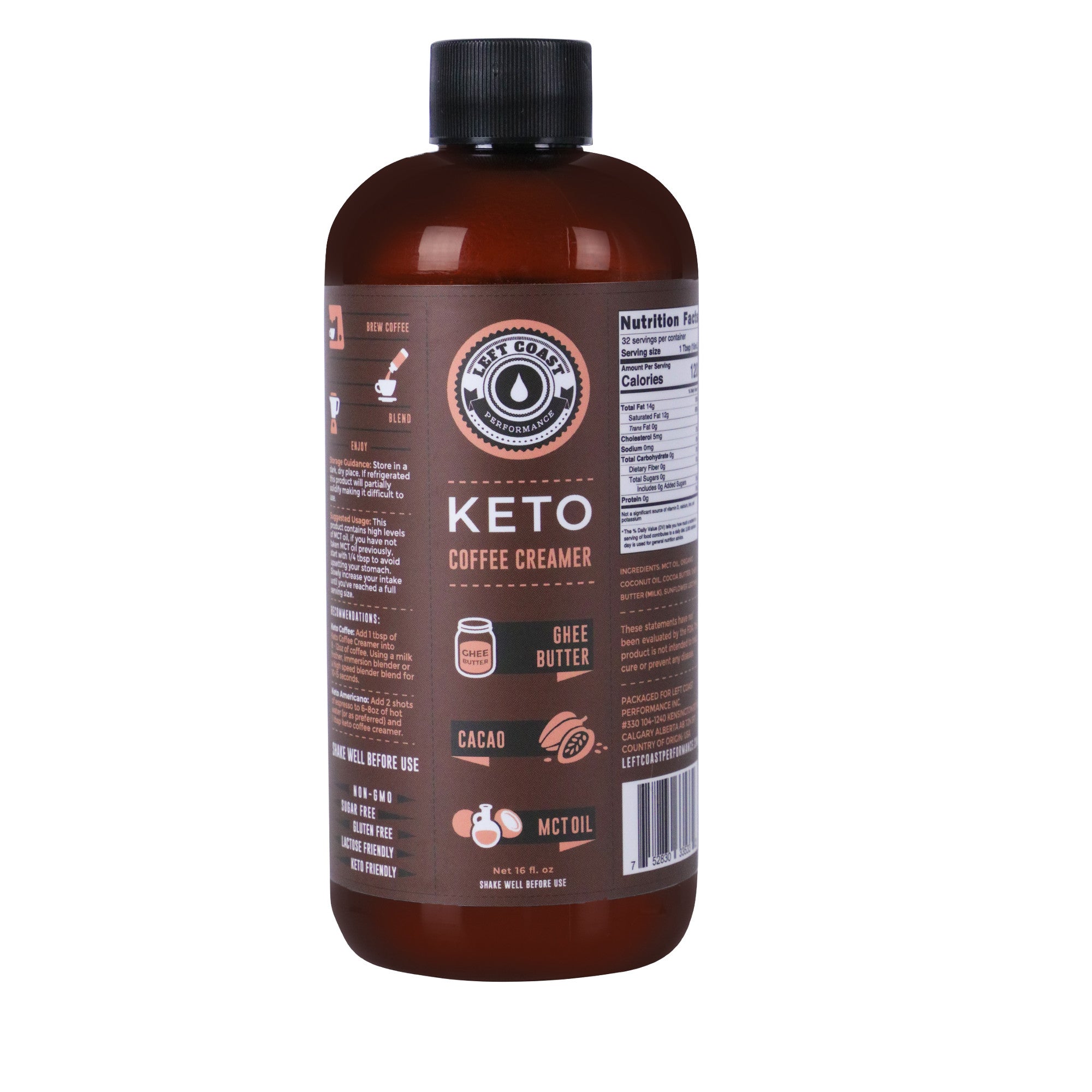How Much Water Should I Drink on Keto?
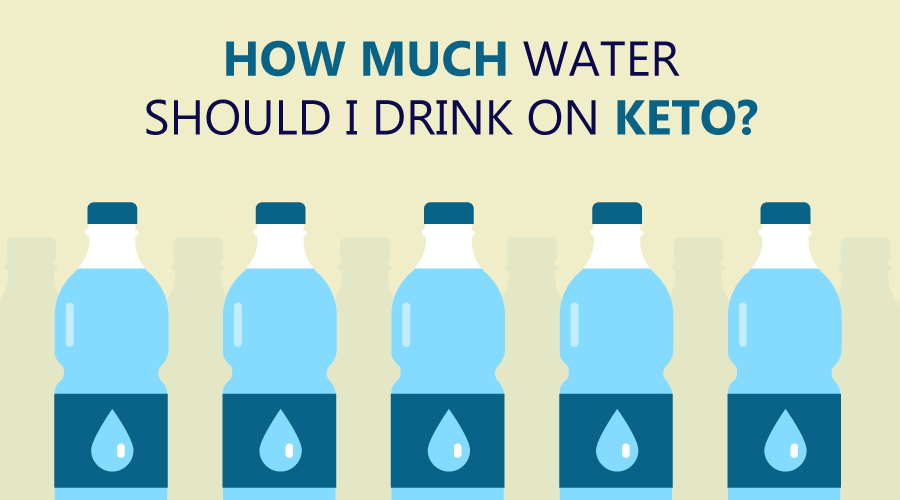
on May 02, 2019
When it comes to water, take daily guidelines with a grain of salt.
That’s because water recommendations, like the eight glasses of water one is supposed to consume each day, are full of misinformation. They’re repeated so often, by so many sources, that they may as well be law.
Water is one of the two most important ingredients necessary to sustain life. Water even plays a special role in how we digest our food and transform it into energy. But when it comes to the ketogenic diet, the traditional water guidelines go out the window.
What’s the deal with water? How can you gauge your water consumption needs for the day, let alone follow the right water goals while on keto?
To answer these questions, we have to go back to the beginning, starting with the important role that water plays on a molecular level in the body.
What Does Water Do For the Body?
According to the Center for Disease Control, water helps your body perform many important tasks. It allows the body to regulate temperature, lubricate crucial joints and ligaments, regulate body temperature, cushion the spinal column, transport nutrients to cells and remove waste from the body.
On top of these essential bodily functions, water also aids in the digestion process. It softens and breaks down food in the stomach in a biochemical process called hydrolysis, which makes work easier for the digestive acid in the stomach.
The human body itself is made up of water — a whopping 60% of our body weight. In short, water is a critical element that keeps the body healthy, and when you aren’t getting enough, it can really take a toll.
Dehydration is the medical term for not having adequate levels of water in your body to perform at your best. Dehydration can leave you feeling tired and weak and can turn into a serious health risk if left unaddressed.
Mild to moderate dehydration can be rectified simply by drinking more water when you need it. If severe dehydration occurs, medical treatment may be needed in order to avoid serious complications.
Followers of a ketogenic lifestyle should be wary of the signs of dehydration because the ketogenic diet changes how your body handles water when it comes to storing energy.
How Keto Changes Your Water Requirements
For those on keto, water intake should be as closely monitored as macronutrients. This is due to the cellular mechanisms that change as the body enters ketosis.
As keto dieters know, ketosis is the process in which the body switches from metabolizing carbs to metabolizing stored fats.
In the normal process of turning carbohydrates into energy, water plays an important role in carbohydrate storage. For every gram of glycogen stored in the body, several grams of water are stored as well. This is where the term from which “water weight” originates.
Water weight is typically the first weight loss that happens on a low-carb journey, and it’s usually the easiest to lose. As carbs become scarce in the diet, the body turns to the carbs it already has in storage and burns them for fuel. As the stored energy, in the form of glycogen, is used up, the water stored along with the glycogen is released as well.
At any one time, the body stores up to a pound of glycogen, which means up to three pounds of water weight on top of it.
After switching into ketosis and losing water weight, drinking water becomes a critical step in the ketogenic diet. Because the body is no longer storing carbs — and thus extra water — the body starts to run a water deficit. Many keto dieters don’t realize that entering ketosis will change how their body uses and stores water, and they continue to consume water at the same rate as they did previously.
This puts the body in a difficult state, as normal thirst signals will start to happen more and more in an effort to make you drink water.
Dehydration on a keto diet can lead to several notorious symptoms bundled together under the title of the keto flu. While not a viral illness, the keto flu describes feelings of weakness, fatigue, irritability, and nausea that can be a real buzz kill right at the beginning of the keto journey.
The Eight Cups a Day Myth
Another challenging aspect of water consumption and keto is knowing just how much water is enough. The rule of thumb that you need to drink eight glasses of water a day is one of the most pervasive nutrition myths out there, and it has been repeatedly debunked.
The New York Times postulates that the myth originated from a 1945 report from the Food and Nutrition Board that recommended 2.5 liters of water per day, but with the added stipulation that most of that water would come in the form of prepared foods — fruits, vegetables, juice, tea, and even coffee.
Modern scientists and nutritionists hesitate to give a standard recommendation for daily water intake. This is for a few reasons:
Different Bodies Have Different Needs
The amount of water a body needs per day varies. Depending on where you live, what you eat, what you weigh, and how active you are, that number is going to fluctuate from person to person.
Your Body Lets You Know When It Really Needs Water
The human body itself is good at regulating its own internal environment. Just like it can regulate its own temperature to hover around 98.6℉, the body also does a great job regulating water levels on its own. In addition, the body sends powerful signals that stimulate thirst far in advance of actual dehydration.
Drinking Extra Water Doesn’t Do Much
Many studies over the years have failed to garner scientific proof that drinking extra water is beneficial to our health. In fact, some sources say the driving factor behind the movement to get people to drink more water is the bottled water industry and other companies with a vested interest.
Fitting Hydration into Your Keto Lifestyle
Knowing how much water to drink is already a complex challenge, and it gets even more difficult when you’re on a keto diet. The goal is to drink enough water that you stay hydrated and limit your water intake to a reasonable amount that isn’t too much and reasonably sustainable over time.
So how are the followers of keto tackling this challenge? Some folks who follow a keto lifestyle have developed their own guidelines for water consumption. Several Reddit users swear by the rule of consuming the half the number of pounds you weigh in ounces. For example, a person who weighs 155 pounds would consume 77.5 ounces of water, which equates just over a half gallon per day.
Other sources say to avoid strict numeric guidelines altogether and to use how you feel and the color of your urine as a guide. They advise drinking water until urine reaches a light yellow or clear color, and to maintain that level over time.
Whether you choose the strict numerical standard or set a more generic goal for water consumption, the next step is to follow through on your water consumption goals. Once you have set a benchmark for yourself, there are several ways to remind yourself to drink water when you need it.
- Drink a glass at meal times.
- Eat more vegetables with high percentages of water
- Iceberg lettuce, cucumber, celery, green peppers, spinach, are all good souces of water.
- Keep a reusable water bottle with you at all times
- Use an app
- For a 21st century solution, turn to a variety of apps designed to remind you to drink enough water. Popular favorites include My Water Balance and Plant Nanny.
On Electrolytes
Water is not the only contributing factor to maintaining healthy cell function. Electrolytes, such as magnesium, potassium, and sodium, help to regulate fluids across cells. Just as water decreases during a low-carbohydrate diet, so do electrolyte levels. This makes it important for those on the keto diet to get enough electrolytes.
Here’s what to eat in order to get the electrolytes you need on a ketogenic diet:
Sodium
- Table salt
- Seasoning blends
- Coconut Water
- Pork rinds
- Pickles
- Bone broth, bone broth powder or bouillion cubes
Potassium
- Avocados
- Spinach
- Broccoli
- Mushrooms
- Cucumbers
- Peas
Magnesium
- Tofu
- Spinach
- Avocado
- Dark chocolate
- Almonds
If you're still struggling to get enough Magnesium, Potassium or Sodium consider taking a supplement like our Keto Electrolytes.
Wrapping It Up
There’s a lot to understand about the body’s water needs — the topic itself is fairly complex. From transporting nutrients in the blood and removing waste to storing energy and aiding digestion, water does a lot for the human body, so it’s important to get enough of it.
All technical aspects aside, the most important thing for those on the keto diet, and all folks looking to hit their water goals is to drink when you feel thirsty. This simple guideline will help you get to where you need to be on your keto journey while avoiding the unpleasant side effects of dehydration.


